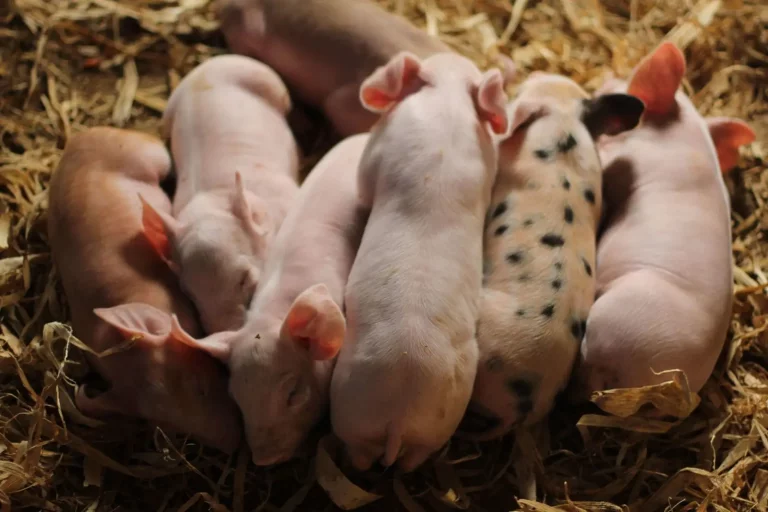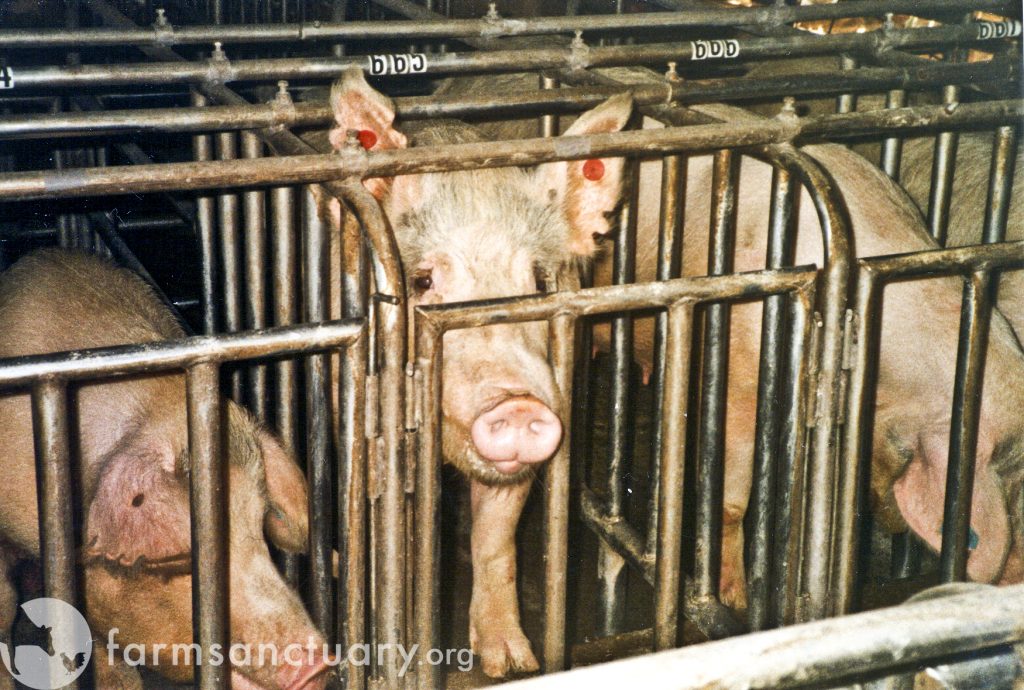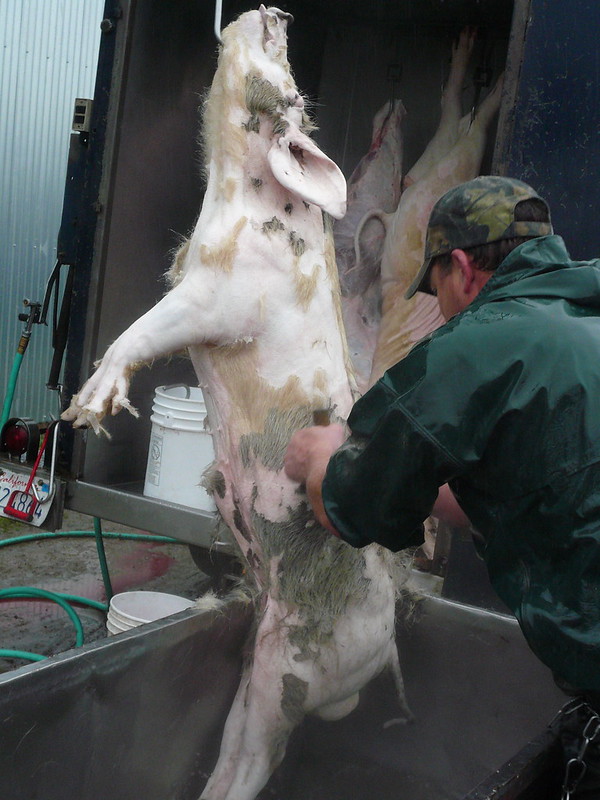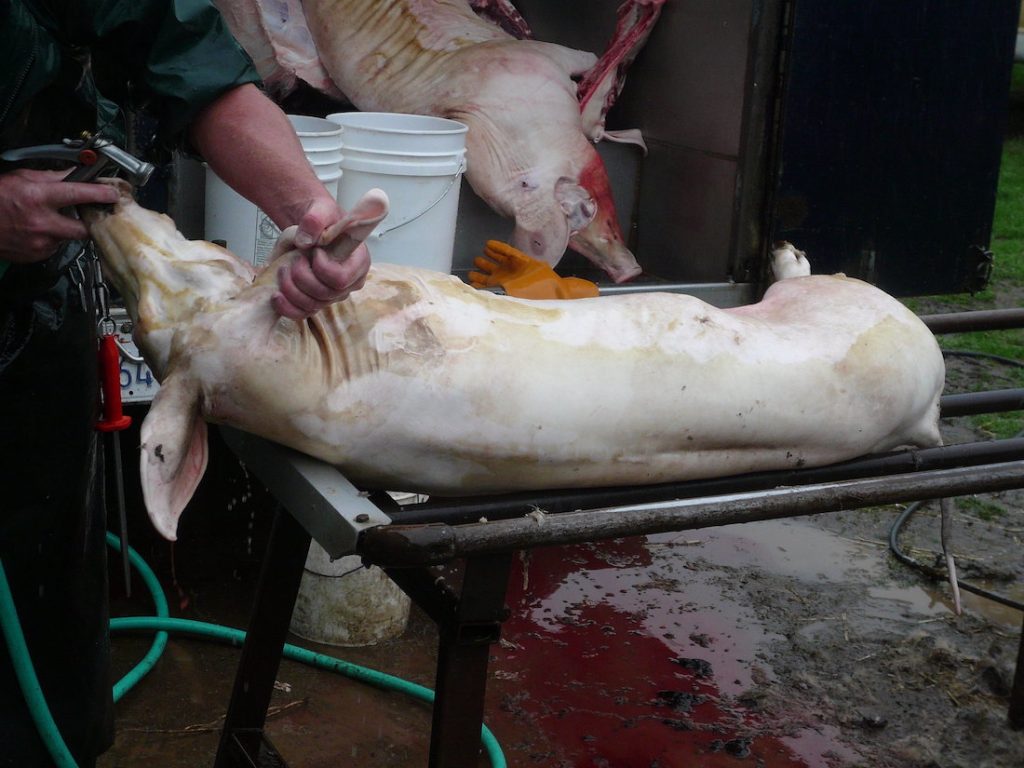
The Hidden Lives of Pigs: Sensitive Souls in Horrific Conditions
New York, N.Y. In the United States, pigs are often raised in conditions that are often appalling. Despite their intelligence and sensitivity, pigs are subjected to industrial farming practices that cause immense suffering. It’s time to recognize that if we care about the well-being of our dogs, we should extend the same compassion to pigs and reconsider our consumption of pork.

Pigs: Intelligent and Sensitive Creatures
Pigs are remarkably intelligent animals, often compared to dogs in their cognitive abilities. Studies have shown that pigs can solve complex puzzles, understand symbolic language, and even use mirrors to locate hidden objects. They are social creatures that form strong bonds with each other and with humans. Just like dogs, pigs experience a wide range of emotions, including joy, fear, and sadness. When the pigs’ basic needs are denied, and they experience severe physical and psychological disorders.
Despite these similarities, pigs are treated very differently from dogs in the agricultural industry. While dogs are cherished companions, pigs are often seen merely as commodities. This disparity in treatment raises ethical questions about how we value the lives of animals.
The Reality of Factory Farming
In the U.S., the majority of pigs are raised in factory farms where they endure harsh and inhumane conditions. These facilities prioritize efficiency and profit over animal welfare, leading to a life of suffering for these sensitive animals.
Pigs in factory farms are often confined to small, overcrowded spaces with little room to move. They live in filthy conditions, surrounded by their own waste, which can lead to severe health issues. The lack of mental stimulation and physical exercise causes immense stress, leading to abnormal behaviors such as tail-biting and aggression.
Mother pigs, known as sows, are kept in gestation crates so small they can barely turn around. They spend their lives in these crates, repeatedly impregnated to produce litter after litter of piglets. The separation of piglets from their mothers at an early age adds to the psychological distress experienced by both sows and their offspring.

The Ethical Implications
The stark contrast between the lives of pigs and dogs highlights a moral inconsistency in how we treat animals. If we acknowledge that pigs are as sensitive and intelligent as dogs, then it follows that we should extend our compassion to pigs and consider the ethical implications of consuming pork.
Choosing to stop eating pork is a powerful way to stand against the cruelty inflicted upon pigs. By reducing demand for pork products, we can push for better treatment of animals and support more humane farming practices.
Alternatives to Pork
Fortunately, there are many alternatives to pork that allow us to enjoy delicious meals without contributing to the suffering of pigs. Plant-based proteins such as tofu, tempeh, and legumes offer versatile options for creating tasty dishes. Additionally, the rise of plant-based meat alternatives means that it’s easier than ever to find substitutes for traditional pork products like bacon and sausages.
Supporting companies that prioritize animal welfare and sustainable practices can also make a significant difference. Look for labels such as “Certified Humane” or “Animal Welfare Approved” to ensure that the meat you consume comes from farms that prioritize the well-being of their animals.

In Short
In some Asian countries, they have eaten dog in the past although dog meat markets have slowly been shut down. It is not impossible to put an end to “pork production” in the U.S. We just need a sea-change of understanding. Wilbur could be Fido.
Pigs are intelligent, sensitive creatures that deserve the same compassion we extend to our beloved dogs. The conditions in which they are raised in the U.S. are all too often horrific, causing immense suffering. By choosing to stop eating pork, we can take a stand against animal cruelty and promote more humane treatment for all animals.
If you care about your dogs, consider extending that care to pigs. Your choices can make a difference in the lives of these intelligent and sensitive animals. Let’s work together to create a world where all animals are treated with the respect and kindness they deserve.
Caring for Pigs Like Our Pets: Why We Should Rethink Eating Pork (July 5, 2024)
#AnimalRights, #CompassionForPigs, #SayNoToPork, #FactoryFarming, #EthicalEating, #AnimalWelfare, #ChooseKindness
TAGS: Pigs, Animal Welfare, Factory Farming, Pork Production, Ethical Eating, Animal Rights, Plant-Based Alternatives, Humane Farming Practice